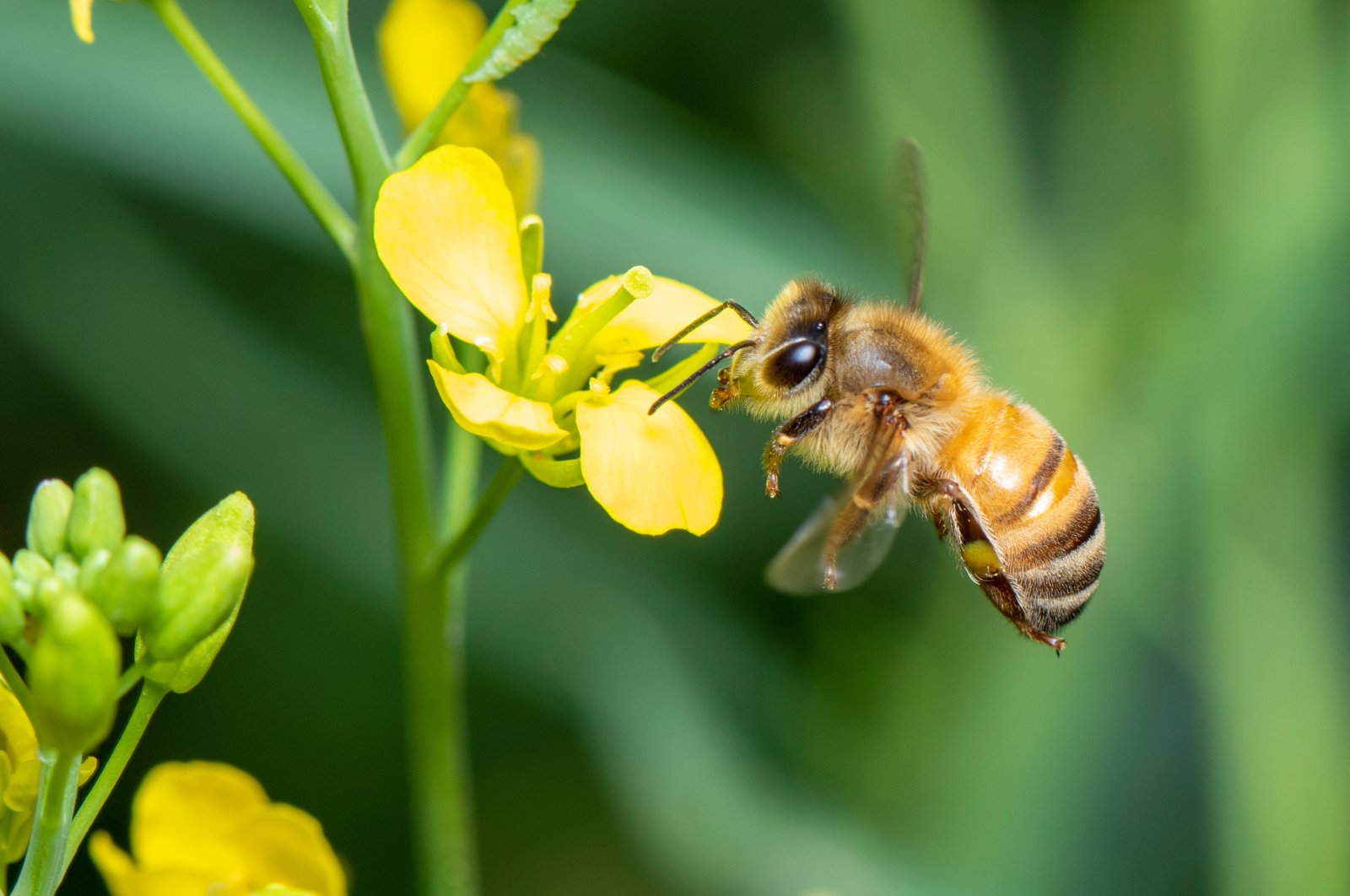
The Ministry of Agriculture and Forestry Wednesday has rolled out an ambitious action plan to bolster research and development efforts focused on pollinator insects while raising awareness among pre-school and high school students through curriculum enhancements.
At the heart of this initiative is the "National Pollinator Protection Strategy and Action Plan," a comprehensive roadmap designed to identify and safeguard pollinator species within the country's rich flora and fauna.
Türkiye, known for its robust agricultural output and diverse ecosystems, stands to benefit from this plan by minimizing the adverse impacts of climate change on vital plant species, which serve as a primary food source, as well as the pollinators that underpin biodiversity.
Pollinators play a pivotal role in the proliferation of flowering plants, which significantly contribute to terrestrial life. While honey bees are the most recognized pollinators, a range of other species, including bumblebees, solitary bees, flower flies, butterflies, moths, and certain beetles, also play essential roles in this ecosystem.
Alarmingly, of the 115 widely produced and consumed food products, a staggering 87 depend on pollinators. The global economic value attributed to the contribution of pollinators ranges from $235 billion to $577 billion.
Recent years have witnessed a decline in pollinating insects worldwide due to the effects of climate change, raising concerns about the future of these crucial food sources.
Under the purview of the action plan, several key strategies will be implemented:
Pollinator Diversity Inventory: A comprehensive inventory of pollinator species will be established, and their distribution limits will be determined to monitor changes in species and genetic diversity, particularly in response to climate change.
Protected Ecosystems: Ecosystems vital to pollinators will be incorporated into protected areas, with a focus on monitoring biodiversity indicators.
Species Identification and Protection: Pollinator species with significance for food, agriculture, and livestock will be identified and safeguarded to mitigate pressures and threats to pollinator diversity.
Artificial Nest Development: Research and development efforts will be intensified to promote the use of artificial nests in agriculture, harnessing the positive impact of specific species on agricultural productivity.
National Awareness Campaign: A nationwide campaign will be launched to raise awareness and knowledge about pollinators. The curriculum from pre-school to high school education will be enriched with content related to pollination and pollinators. A series of events and training programs will be organized for farmers.
This visionary plan emphasizes the commitment to environmental stewardship and the preservation of vital food sources and protecting biodiversity in the face of climate change challenges.
